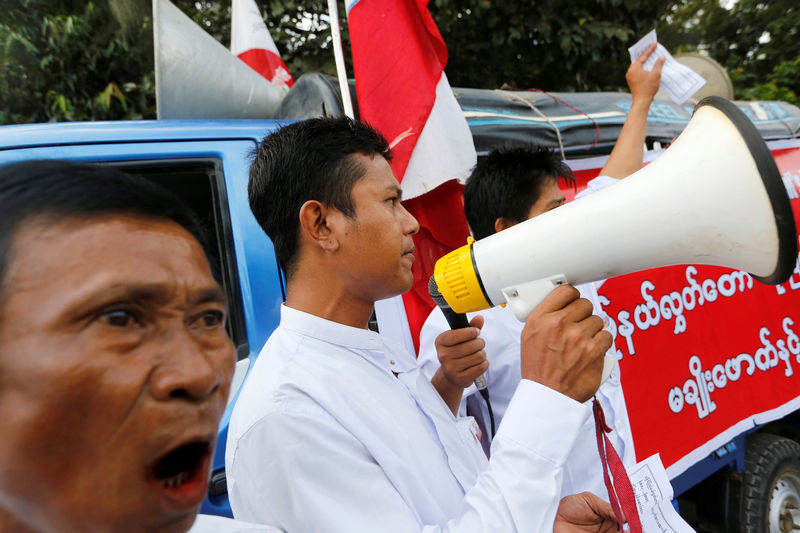By Yimou Lee and Aye Win Myint
YANGON (Reuters) - A team led by former U.N. chief Kofi Annan arrived in Myanmar's northwestern Rakhine State on Friday to address the plight of Rohingya Muslims, amid an army crackdown that has killed at least 86 people and sent 10,000 fleeing to Bangladesh.
Annan will spend a day in the state capital, Sittwe, before traveling to the north, which has been under lockdown since the military launched a sweep of the territory after attacks by militants on border posts on Oct. 9.
Myanmar leader Aung San Suu Kyi had appointed the nine-member commission before the current fighting erupted to advise on the restive state, where ethnic Rakhine Buddhists and the Rohingya Muslims have lived separately since clashes in 2012 in which more than 100 people were killed.
The latest violence poses the biggest challenge so far to Suu Kyi's eight-month-old government and has renewed international criticism that the Nobel Peace Prize winner has done too little to help the Rohingya minority, who are denied citizenship and access to basic services.
The six Myanmar and three foreign commissioners, including Annan, were greeted at the airport by Rakhine chief minister Nyi Pu and fewer than 100 protesters. The commission first went to the state in September.
The protesters carried signs that read "Ban the Kofi Annan commission" and chanted "we don't want Kofi Annan commission". Police, some wearing bulletproof vests and carrying rifles, appeared to outnumber protesters.
"The Rakhine issue is an internal affair. We cannot accept interference from outsiders," said Maung Khin, a farmer at the protest. "We don't need foreigners for our internal affairs. This shows how the government mishandles the case."
Myanmar's military and the government have rejected allegations by residents and rights groups that soldiers have raped Rohingya women, burnt houses and killed civilians during the military operation.
United Nations officials said this week more than 10,000 people had fled to Bangladesh in recent weeks.
Suu Kyi bowed to weeks of international pressure late on Thursday to appoint a commission to investigate the original attacks and the allegations of human rights abuses by the military.
However, she raised eyebrows with her pick for the chief of the team, vice president Myint Swe, who was head of the feared military intelligence under former junta leader Than Shwe.

Myint Swe, a close confidant of the former junta supremo, was the chief of special operations in Yangon when Than Shwe ordered a crackdown on anti-junta protests led by Buddhist monks in 2007, known as the Saffron Revolution.